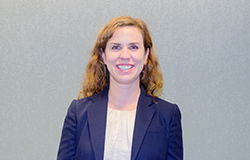Like so many teachers, when I first entered the classroom, I believed that I would be effective. Then I met Mohammed, and Jose, and Efrain. Mohammed was defiant. He refused to do work, disrupting the learning of my other students. Most days, Jose hid under his desk. Efrain turned eleven in 4th grade because he was retained in El Salvador before coming to the U.S. and couldn't read a word in English or Spanish. I wanted more than anything to help these students. In fact, I wasn't helping them. I was like most first year teachers. I needed more training. I needed coaching. I needed a veteran teacher who could guide my practice.
What I felt most acutely in those first few months of teaching was that all of the students in my class would be better off it they were across the hall in Mrs. Lewis' class. Debbie Lewis was a skilled veteran teacher. She was the kind of teacher my kids deserved.
In the beginning, I despaired of ever becoming that teacher. But slowly that year, my teaching got better. That year, Debbie talked me through every challenge I experienced in my classroom, from instructional failures to behavior issues, and helped me problem-solve so that I did better the next day. She worked with me to create a class-wide behavior system that even Mohammed wanted to follow. Together, we differentiated my lesson plans so Jose and Efrain would make progress. Debbie wasn't the only one. Other coaches came into my classroom to equip me with skills to become more effective.
My students and I learned together. I became more effective because of the support and training I got on the job, not the masters course work in which I had received a perfect 4.0. My first year struggles highlighted the shortcomings of the practicum experience. Student teaching was not enough. When I was given a room-full of children, I needed real-time training to teach well.
But what if my experience wasn't one of luck of placement? What if my first year of teaching was not spent knocking on Mrs. Lewis' door, but co-teaching and learning in her classroom? What if we required first year teachers to co-teach in the classroom of an effective veteran educator trained to coach and grow first year teachers? The goal of teacher preparation should be to establish a system of collaboration and coaching that supports first year teachers' trajectory towards effective teaching, while her students receive effective instruction.
A co-teaching model, where an apprentice teacher and an educator trained as a teaching coach are both responsible for a classroom would go a long way towards growing effective teachers more quickly. In this model, the apprentice teacher would both teach and watch model lessons taught by the veteran educator. There would be daily feedback and daily growth. With the teachers working together, both the students and the first-year teachers would be well supported in their growth.
This model would certainly benefit from university coursework that readies teachers to step into an apprenticeship position. Beyond the methodology and theory classes that are currently taught in schools of education, coursework needs to incorporate more targeted observations of highly effective teachers (both in person and recorded), a deeper understanding of how to effectively incorporate observation feedback, and opportunity to teach and receive more feedback on model lessons. Student teachers should still have a practicum experience to support their growth. My practicum experience was wonderful, it just wasn't enough.
My students were lucky. My gifted colleagues supported my growth as a teacher. But even with that support, I still look back on that first year with regret. I wish that my students, all 20 of them, could have had the teacher I am now. A teacher who can run a classroom and deliver effective instruction. A teacher who supports larger academic gains and more social-emotional growth. If we create and require a co-teaching, coaching model for all first-year teachers, our students would not be subject to the slow, trial-and-error professional growth of first-year teachers.
Nicole Thorpe taught for 7 years in traditional public schools and is now a special education resource teacher at Ingenuity Prep Public Charter School in Washington, D.C. She is a Teach Plus Teaching Policy Fellow.
